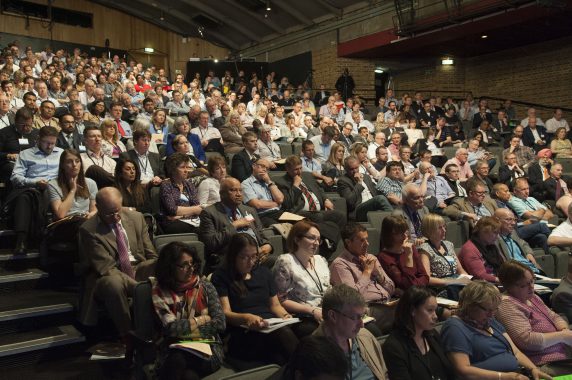GP leaders have voted in favour of implementing private fees for overseas visitors, with any fees being retained by general practice.
The motion, proposed at the annual LMCs conference in London today, argues the Government can still offer free care in urgent care settings like walk-in centres and A&Es.
But the GPC is now compelled to lobby for overseas patient attendances to only occur on a ‘private fee-paying basis’ and that ‘any fees paid should be retained in full by general practice.’
Proposing the motion, Dr Russell Brown of Surrey and Sussex LMCs argued that in his Eastbourne practice the unremunerated cost of seeing holiday makers or short term student visitors was significant.
The motion was passed in full by representatives, despite no other arguments in favour and other representatives speaking against the issue which they argued makes GPs middle-men for immigration control.
Dr Brown told delegates: ’This is not about GP surgeries policing eligibility for NHS care, but there is no funding recognition for the workload involved in seeing these people – which can be considerable.
’In Eastbourne we have many young, foreign students visiting for a few weeks of the year, some of whom need to see a GP. Many of them are from countries where we have no reciprocal arrangements for healthcare. Even if there are reciprocal arrangements, that funding doesn’t reach us.’
He added: ’Travel insurance is not hard to organise.’
Opposing the motion, Dr Frances O’Hagan, representing Southern Northern Ireland LMC warned that the bureacracy involved in verifying and following up charges for every patient they see from the Republic of Ireland would be a ‘nightmare’.
She said: ’I do not want to start policing for the immigration, I agree that we should not be funding it. But it should be funded in some other way, like secondary care is funded to do it.’
Dr Jan Kletta, from Morganwyg LMC, quipped that his heritage gave him a slight vested interest, saying in the practice ‘I’m called Polish Pete, even though I was born in Kent’.
He asked whether the motion was neccesary in much of the UK, saying: ‘ I accept that on the South Coast where they may see a lot of overseas visitiors and this might be a very practical problem for them, but in Bridgend it wouldn’t be a huge problem.’
He also questioned whether private fees were an appropriate method and said ‘if we pass this, it causes problems in terms of EU law’.
Speaking for GPC, negotiator Dr Dean Marshall said motion was made ’difficult because the laws in England were different from the rest of the UK.’
He added: ’I have absolutely no doubt that the Government’s plan is to make us do the work and then direct the money to them, and that’s something that we’re discussing with them again next week. That doesn’t neccesarily, in my view, mean we should start charging.’
This comes after this week’s Queen’s Speech said that migrants would be charged for NHS services that they are not entitled to, and the Department of Health has already launched a consultation on charging foreign visitors for some GP services, such as blood and lung-function tests, but keeping consultations free.
Motion in full
EAST SUSSEX: That conference believes that overseas visitors should be able to attend UK general practitioners but:
(i) this should only be on a private fee-paying basis
(ii) any fees paid should be retained in full by the general practice
(iii) it remains open to the government to offer NHS care free to overseas visitors at walk-in-centre, urgent care centres, and accident and emergency departments, and patients can be offered these alternatives.
Pulse October survey
Take our July 2025 survey to potentially win £1.000 worth of tokens














